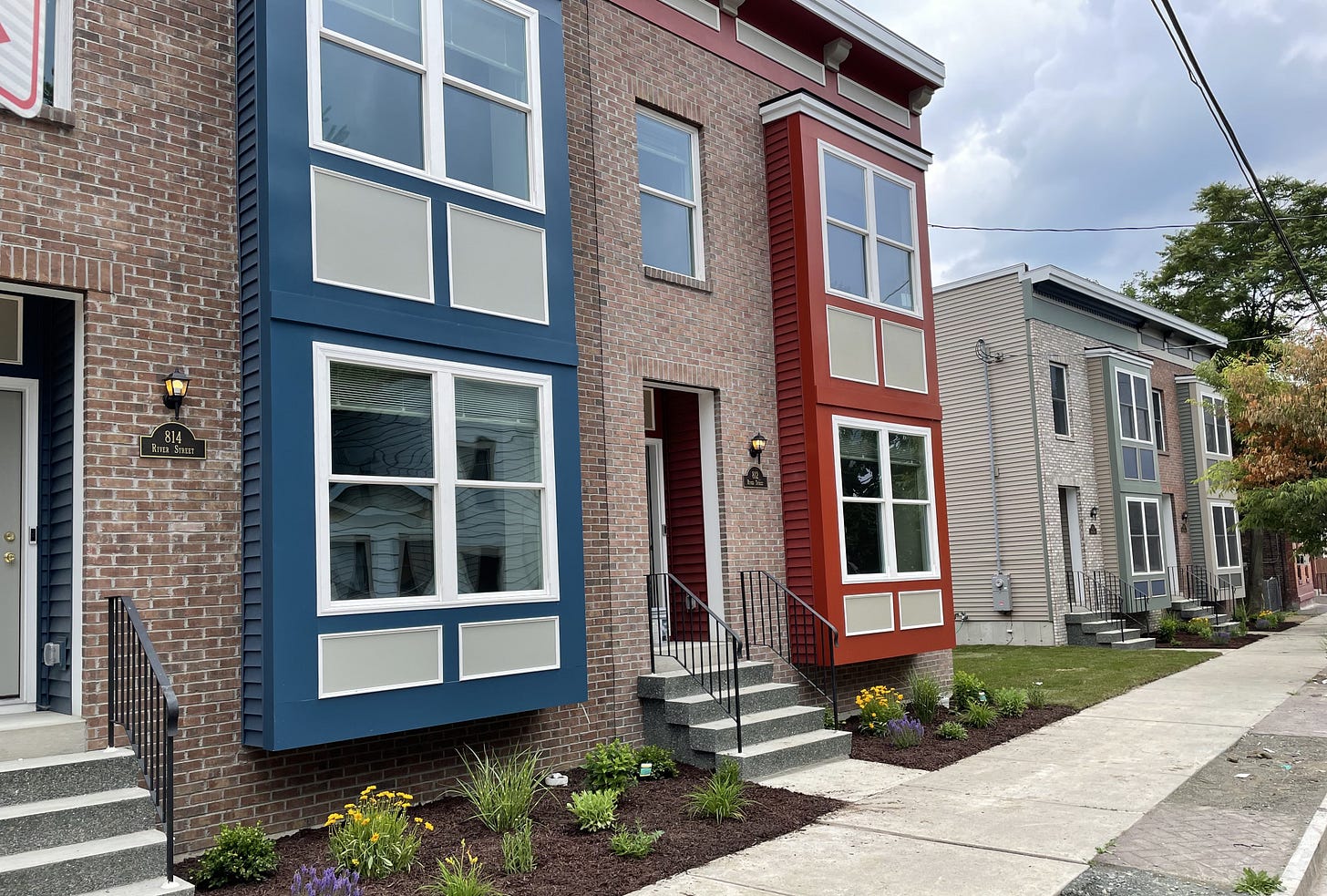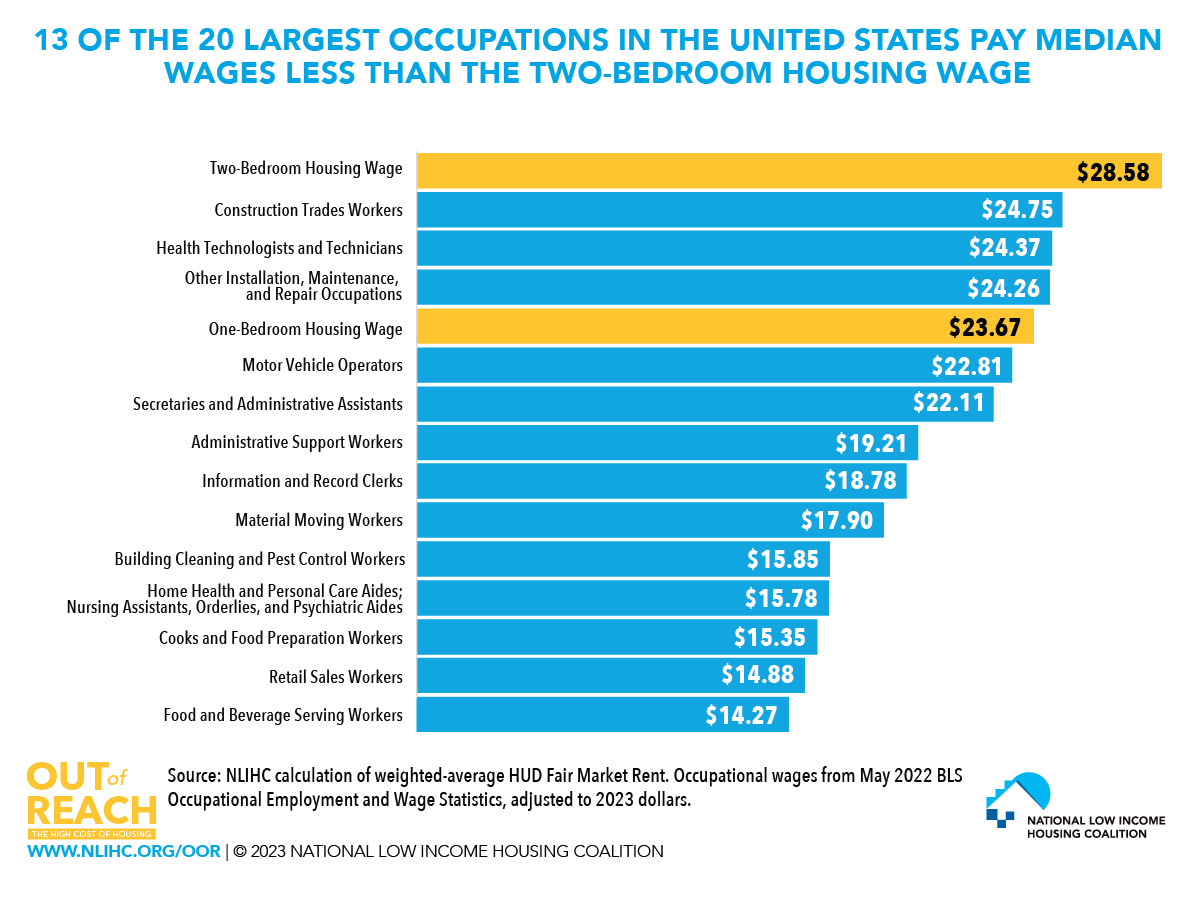
Imagine a system where the basic right to shelter was treated like a speculative, investment-driven stock market. Where your decisions about shelter depended not just on your own personal situation, but on factors completely outside of your control. Oh hi, welcome! That’s our system. A volatile marketplace where we treat housing like a commodity and financial investment instead of shelter.
I always laugh when I’m listening to Marketplace or the news and someone will say, “The market did this,” or “the market acted too quickly,” or something along those lines. As if The Market was an intelligent being. As if it acted of its own accord. Whether we’re talking about financial markets or the housing market, we pretend it has a mind of its own that wasn’t designed, quite intentionally, by humans.
Habitat’s global organization started to fill a hole left by systemic government and market failure.1 We offered an alternative. At first, and for many Habitat affiliates still, we even served as the bank. We originated zero interest loans and collected mortgage and escrow payments each month, because no other banking institution would lend to the families we serve. We build and rehab houses ourselves, because no other developer will sign onto a project with numbers like ours, where it costs close to $300k to build a home but we sell it for half that price.
The Market is failing us. We can talk about supply all we want, and we should, but market-driven approaches alone won’t build a community where everyone has a place to live. We have to build the right kind of housing. We have to make it affordable for the families that The Market is failing. We’ll need to approach this imperative from several directions: construction innovations, like modular housing that can work as well in the city as it can in the suburbs.2 Housing finance innovation, figuring out the right combination of incentives to spur the right kind of affordable housing development, like the Neighborhood Homes Investment Act. Regulatory innovation, like upzoning neighborhoods so that multifamily and “missing middle” development is allowed instead of only single family detached homes. And, of course, subsidy. Money. Public investment. Government is good, actually, and it has an important role to play in remedying the harms of past housing policies and ensuring that it’s populace has equal access to basic human rights.
We’ve also got to start paying people better. Why isn’t that part of the housing affordability conversation? Housing prices have increased astronomically over the past few decades, to say nothing of the huge jump of the past few years, but wages are stagnant. Here in New York’s Capital District, you need to earn $25.25 hourly wage needed to afford a 2BR apartment. In some zip codes, you’ll need to earn closer to $36/hour.3 The minimum wage in our state is $15/hour. Make that math work. Pay people more, and they can afford more.
While we wait for that to happen, we need to expand our housing voucher program. Or implement a universal basic income. I’m not picky about the specifics but we need to get money into people’s hands so they can afford a place to live.
Habitat is a developer, but not really. We’re a homebuilder, but with a twist. I’m in the housing industry, but not The Industry. We’re part of a group of neighbors trying to demonstrate what is possible. We have a moral obligation to ensure that everyone in our community has a decent place to live. The Market alone can’t or won’t fulfill that obligation. But the rest of us can and will.
Habitat for Humanity Capital District is celebrating its 35th anniversary, but I have to say that our 30th anniversary special publication is still one of my favorites when it comes to exploring our radical roots: Homecoming: Celebrating 30 Years in the Capital District.
I had a great conversation today with a modular manufacturer that specializes in all-electric, urban footprint homes. Module Housing won the 2023 Enterprise Housing Affordability Breakthrough Challenge, and I’m excited to see where they go from here.
National Low Income Housing Coalition’s 2023 Out of Reach Report.








Very well said, all of it! And man, that brings back memories -- I remember arguing with Marketplace in my kitchen some 15 years ago ... 😂
"We’ve also got to start paying people better. Why isn’t that part of the housing affordability conversation?" 💯💯💯💯💯💯